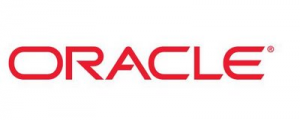Media Relations Are About to Become More Uncomfortable
4.02.2016Company: Media Education CEE, s.r.o.
Today, when you can put your entire strategic communications budget into building channels to reach directly to your audience, you may wonder: do you still want to use media relations to boost your visibility and reputation? Or, in the light of social media and digital communication dynamics, are media relations a thing of the past?
The answer to the first question is a staggering yes. The reason is quite simple: traditional media are valuable because they give weight to your message. Let’s put it this way: it’s like dating. When you communicate on your own, you praise your own qualities to a potential suitor. All he’s got to believe you is your word – and a bit of gossip gathered online from other suitors who dealt with you in the past. On the other hand, when you communicate through the media and you manage to get a positive headline in the newspapers, it’s like having your suitor sit down listening to the village authority. If your suitor is ready to trust the village authority and the authority has nice words to say about you, the chances are you may have a match for your next endeavor – may it be marriage or your next corporate IPO.
Media still matter. They still get to audiences where you can hardly reach. They still have the gatekeeper function that we so easily tend to forget on our blogs and branded communication channels. They still have centuries of experience in recognizing what it really important for the group as opposed to the individual. Journalists are still one of the few forces that have the necessity of critical distance in their job description. We might not always like what we read in the newspapers about ourselves or our competitors. But it doesn’t mean that media relations should be ignored or forgotten when you put together your communication mix. By the contrary, as the Czech media landscape is changing fast, opportunities arise for media savvy leaders and companies that weren’t there before. What are these opportunities?
1. New media formats
Traditional media understood that it can’t win the fight with the new digital world unless it adapts. And it constantly does so, by embracing the means of digital technology to build upon its traditional core values: relevance, newsworthiness, people impact. That’s why we see so many publishing houses going into new formats – may it be audio-podcasts or video-interviews. The news consumes, spoiled and transformed by the possibilities of the new technology, wants to consume information through various channels and at times that fit them right. So, the media adapt. What does it mean for you? It means that media interactions are about to become less comfortable and more time-consuming. If before the start of the new millennium a print journalist would come to interview you with an audio recorder only, now the same reporter might come with an entire video-crew to shoot your every statement and publish it as both print and video-interview. For you, it means more time to prepare your statements, more time to get ready for the interview (dressing and make-up included) and more time to conduct the interview. Above and beyond, it means that you need to feature new skills such as speaking in front of a camera to convey your message, even if you never planned to become a TV star in the first place.
2. More rookies to educate
The media is one of the industries with the highest staff fluctuation overall. Curiously enough, this is an empirical statement - there is still little to no academic or corporate research to back up this evidence or to help us understand the economics of the fourth estate. What this observation means to you is that in today’s media there is a constant inflow of new journalists joining newsrooms and looking for ways to be different. It also means they are looking for good sources – may it be market research or smart people to talk to about a certain topic. In this constantly changing environment, you can be one of the new sources. It only takes a long-term commitment to transparency, preparation and availability for you to become a media sweetheart. And the rewards are rich: for the right to ask for a rise because you are building a higher value of your personal brand to more and better job or business opportunities in your future.
3. More intensive media partnerships
The biggest mistake of a company willing to do media relations is to expect not to advertize and still get its name into newspapers. Sure, it can be done – that’s not the bottom line of the matter. The bottom line is that, on small markets like the Czech Republic, unless companies understand the need to advertize in order to support an environment of thriving commercial media, we all end up with dodgy media deals and problematic media house ownerships. More, how can you expect a title to be there still to report on your story if you cannot allocate budget to support its existence? Advertising is the corporate contribution to a healthy media ecosystem. Of course you can manage the return on investment into your own communication channels better. Yet, if you want the media to exist and thrive for your own good, you need to take advertising into consideration. The best way to do it is by building solid, long-term partnerships with media houses. This will give you access to media formats being planned and can allow you to be the first when a story is put together. Otherwise, you better have an exclusive / newsworthy / impactful story if you have expectations to get media coverage for your company.
Journalists still use the same old criteria to choose news: exclusivity, newsworthiness, impact, people involved, conflict / emotions and bizarreness. Make sure your story is worth reporting. And make sure that, when you envisage media relations, you are able to grasp the whole media industry context and commit to transparent communications long term. This is the key to building a premium reputation, and this cannot be replaced by the fancy glamour of the newest communication technology.
Author: Cristina Muntean. Media consultant, trainer and coach. Founder Media Education CEE







